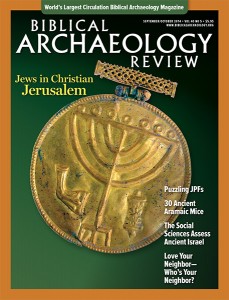Love Your Neighbor: Only Israelites or Everyone?

It’s one of the most famous lines in the Bible: “Love your neighbor as yourself” (Leviticus 19:18).
Impressive. Fascinating. Inspiring. Capable of a thousand interpretations and raising 10,000 questions. A remarkable proposition coming out of ancient Judah, which was embedded in the Near Eastern world of wars, slavery, class and ethnic divisions and discriminations of all kinds.
One interpretation of this verse that has been making the rounds for years turns this grand idea on its head: The claim is that the verse means to love only one’s fellow Israelites as oneself. Instead of being inclusive, it’s actually exclusive. Is there anything to this claim?
We have to start by going all the way back to the Exodus, which the combination of archaeology and text has led me to argue was historical; it actually happened. Ninety percent of the arguments against its historicity are not about the event itself but about the size of the event: All of Israel! Two million people (as suggested by Exodus 12:37–38)! Impossible!
But the evidence of a real but smaller exodus is a different matter. The earliest Biblical sources—the very early Song of Miriam (Exodus 15) and the text known in critical Biblical scholarship as J—don’t mention any numbers.
Already a library member? Log in here.
Institution user? Log in with your IP address.

